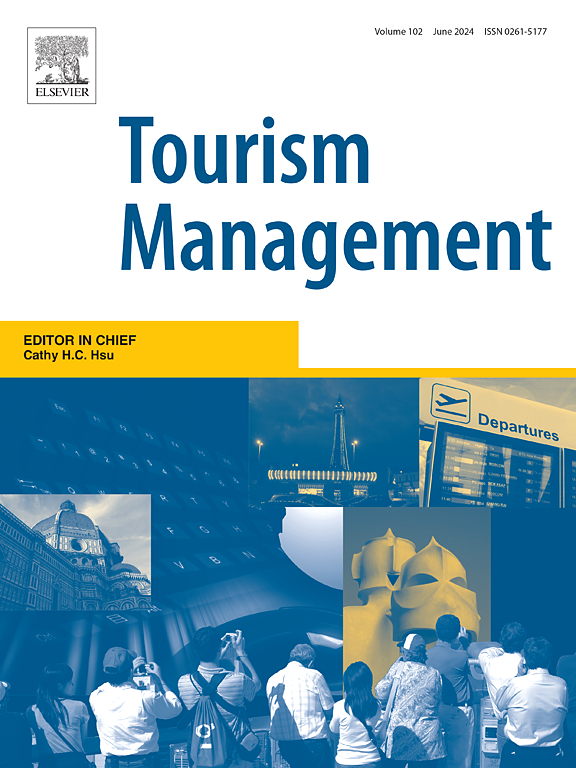创造有道德意义的经验:走向经验性企业社会责任
IF 12.4
1区 管理学
Q1 ENVIRONMENTAL STUDIES
引用次数: 0
摘要
虽然酒店和旅游业通过各种举措承担社会和环境责任,但这些努力往往无法产生抵消成本和提高绩效的商业效益。之前引入了有道德意义的体验(EME)概念,通过让客户沉浸在企业社会责任(CSR)中,而不调用与可持续行为相关的牺牲概念,来解决这一差距。这项研究首次考察了体验的哪些设计方面可以触发消费者对道德意义的评价。我们证明,社会联系是道德意义和积极影响的主要驱动因素,而信息透明度则是次要的、强化的途径。除了首次提供实证支持外,研究结果还扩展了EME的初始概念,丰富了伦理和体验消费的文献,并对企业如何让客户参与企业社会责任工作具有重要的实际意义。本文章由计算机程序翻译,如有差异,请以英文原文为准。
Crafting ethically meaningful experiences: Towards experiential corporate social responsibility
While hospitality and tourism industries engage in social and environmental responsibility through various initiatives, these efforts often fail to generate business benefits that offset costs and enhance performance. The concept of ethically meaningful experiences (EME) was introduced earlier to address this gap by immersing customers in corporate social responsibility (CSR) without invoking the notion of sacrifice associated with sustainable behavior. This study is the first to examine which design aspects of an experience can trigger consumers’ evaluations of ethical meaningfulness. We demonstrate that social connection is the primary driver of ethical meaning and positive affect, while information transparency functions as a secondary, reinforcing pathway. Beyond offering the first empirical support for EME, the results extend its initial conceptualization, enrich the literature on ethical and experiential consumption, and carry significant practical implications for how businesses should engage customers in CSR efforts.
求助全文
通过发布文献求助,成功后即可免费获取论文全文。
去求助
来源期刊

Tourism Management
Multiple-
CiteScore
24.10
自引率
7.90%
发文量
190
审稿时长
45 days
期刊介绍:
Tourism Management, the preeminent scholarly journal, concentrates on the comprehensive management aspects, encompassing planning and policy, within the realm of travel and tourism. Adopting an interdisciplinary perspective, the journal delves into international, national, and regional tourism, addressing various management challenges. Its content mirrors this integrative approach, featuring primary research articles, progress in tourism research, case studies, research notes, discussions on current issues, and book reviews. Emphasizing scholarly rigor, all published papers are expected to contribute to theoretical and/or methodological advancements while offering specific insights relevant to tourism management and policy.
 求助内容:
求助内容: 应助结果提醒方式:
应助结果提醒方式:


